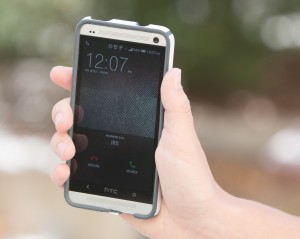Con artists are relying on a new year to assist them in acquiring more personal information and money.

According to the Utah Division of Consumer Protection, scamming continues to significantly affect Utah Residents. College students in the Provo-Orem metropolitan area are among the growing list of victims to these operations.
The Utah Department of Commerce found it important to warn Utahns of the top six scams they are most susceptible to. These scams include: Deceptive debt collectors or jury duty calls, fake IRS calls, fake computer software calls, social media family scams, false bank or credit card smart chip offers and false alarm company upgrades.
Lt. Craig Martinez of the Orem Police Department specifically mentioned the “jury duty scam” which, much like the IRS scam, involves an official calling to inform the victim that they missed jury duty and that there is a warrant out for their arrest. They will then request all the victims information so that they can “take you off a list,” and remove the warrant.
The scam targets grandparents, often using social media. Scammers will send a Facebook message stating that their grandson or daughter is in jail in a foreign country and needs to be bailed out.
“People fall for this, but this is yet another version of the ‘impostor scam,’” said Lt. Brandon Post of the Provo Police Department. “Any time that you’ve been contacted by any kind of governmental organization, it’s usually going to be through mail first, and then if you have any questions … you should always contact the initial office or whatever institution is initially contacting them to verify that they owe money.”
Post said the most recent wave of scams in the Provo-Orem area aren’t necessarily new.
“A lot of times with scams, what’ll happen is that they’ll come out, and people will get privy to them and realize they’re scams and stop becoming victims of them, so they kind of go away for awhile and you won’t hear anything about them, then they’ll pop up again,” Post said. “We won’t have any of them for a few weeks and then suddenly we’ll get hit hard where we’ll get dozens of reports in a single day of people being contacted by these individuals.”
Director of Utah’s Division of Consumer Protection Daniel O’Bannon believes that people give money due to fear, or because they are convinced that the situation is urgent.
“Slow down,” O’Bannon said. “Figure out what’s really going on. If people will just take a minute and do a little bit of research, they can avoid getting sucked into these scams.”




